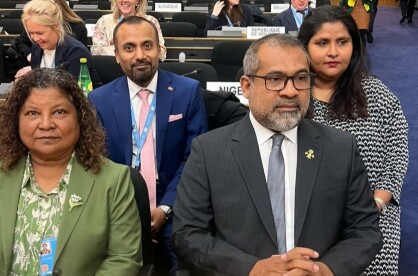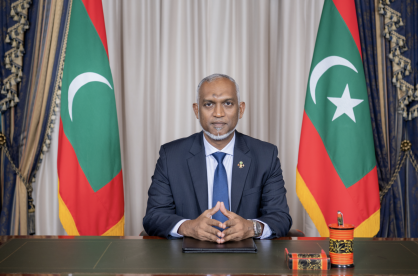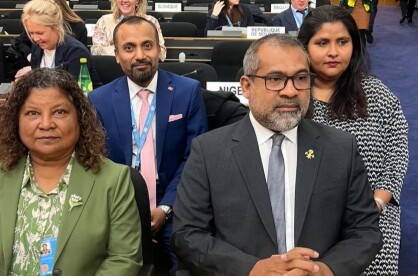The Maldives has been
struggling with its debt situation and managing the finances in the country,
especially since the COVID-19 pandemic. Much like other nations around the
globe, the Maldives also focused heavily on economic recovery following the
pandemic, leading to an increase in expenditure as well as the debt of the
nation. With the issue worsening by the year, the current administration led by
President Muizz has taken some pivotal decisions in order to reduce
the internal debt of the nation, in order for a better future for the economy
of the Maldives.
During the Parliament
proceedings held on 11th December 2023, the Finance Minister of the Maldives, Mohamed Shafeeq made the announcement that the Government will be ceasing the
exemptions for overdrawing from the Public Bank Account (PBA). The Minister revealed that the Government will be putting a halt to
the extensive practice of printing money effective from January 1, 2023,
marking a culmination of a series of events that started way back in 2020.
Though a majority of the
general public might not be aware of this practice that has been repeated by
the former administration led by Ibrahim Mohamed Solih, however, the former
administration had been printing money to sustain the economy since 26th April
2020 due to the COVID-19 pandemic. From this period onwards, the Government was
allowed to print up to MVR 4.4 billion per year, after putting a halt to
following Article 32(h) and (b) of the Fiscal Responsibility Act.
While the Parliament of the
Maldives decreased the amount that the Government could print to MVR 2.2
billion, the printing orders up to this limit were carried out two years in a
row, regardless of the big risk that the Government was taking in printing money,
as this can easily lead to high inflation in the country that was already
struggling with increasing prices and increasing internal debt.
Making matters
even worse, it has also been revealed that out of all of the money that was
printed by the former administrated MVR 4.2 billion has been converted into
long-term bonds that need to be paid back. The reasoning behind this decision,
as anyone can easily guess is likely due to the government struggling to pay
back these debts as the country has been facing this issue with its external
debts over the years as well, however, this decision presents an attempt at
mitigating potential inflationary effects by the former administration.
Reversing this decision to
print money further, the current Finance Minister outlined that the decision to
allow the printing of money was due to natural circumstances that could not be
avoided, referring to the COVID-19 pandemic, however, as the pandemic is no
longer an issue the minister stated that there is no reason to continue to
print money, causing anymore risk of debt and inflation in the country. With
this, the administration has decided not to extend the permit to print money
effective from January 1, 2023, declaring the termination of exemptions that
were brought to a halt earlier for Articles 32(h), (r), and (b) of the Fiscal Responsibility Law.
With this, the minister
also highlighted some of the major reasonings for the termination of the
permit, stating that the country’s GDP and real GDP have shown exponential
growth in 2019, surpassing the pre-outbreak levels which indicate economic
recovery. Additionally, the decision also aligns with the provisions of the Fiscal Responsibility Law, emphasizing the necessity for adherence
to specific fiscal limits and regulations.







